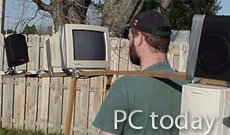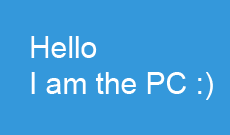Every time I buy a new computer, it ends up under my bed collecting dust within a week. It’s not that I dislike the device, it’s that I can’t work with a machine that doesn’t hold all my files. My workflow revolves around creating, downloading, and sharing text documents, code repositories, family photos, personal videos, and everything in between. The device I use feels like an extension of myself because that’s where my digital life resides.
The obvious solution, of course, is to save everything in the cloud. But I’ve never fully embraced cloud services. Instead, I keep my most important files strictly on-device. If I need to transfer something temporarily, a presentation for a meeting or a batch of vacation photos, I’ll reluctantly upload it to Google Drive, share it, and then delete it immediately. Even for code, while I use platforms like GitHub for collaboration, my local repositories remain my primary source of truth. My files stay within arm’s reach, untethered from subscriptions or corporate servers.
Take my 2015 laptop. Over nearly a decade, it’s become a digital home. I know every folder: my unfinished book lives in /Documents/Books, my decade-old family photos are neatly sorted in /Media, and my tax records sit encrypted in their own folder. When I bought a sleek new laptop last year, I assumed it would replace my aging workhorse. Instead, it became just another tool. Powerful, yes, but devoid of the context that makes my workflow mine.
This pattern repeats with phones, too. When I upgraded my six-year-old device, transferring 200GB of files was not an option. Decades of voice memos, thousands of notes, and years of text threads meant sacrificing a third of the new phone’s storage. Now, the old device sits in my office, permanently plugged in, acting as a makeshift personal server. Am I a hoarder? Maybe. But these files aren’t clutter, they’re milestones.
If “home is where the heart is,” then my computer is where my work is. Every file represents a project, a memory, or a piece of progress. As my digital footprint grows, so does my reluctance to outsource its care. What I need isn’t another subscription service. It’s a system built on my terms. Here’s the blueprint:
- Unified, expandable storage: no more juggling drives or paying for tiers.
- Cross-platform access: seamless apps for Android, iOS, and desktop.
- Zero third-party dependencies: no corporate middlemen.
- Military-grade security: encryption I control, with physical backups.
Until then, my “home” will stay fragmented across devices. But once this system exists, my files will finally have a permanent address and my computers can retire from their dusty under-bed fate.




Comments(2)
Kev Quirk :
I think what you need is a Synology. It’s your own private cloud. ☁️
Ibrahim Diallo author :
Thanks @kev. You are the second person to recommend Synology. I will give it a try.
Let's hear your thoughts